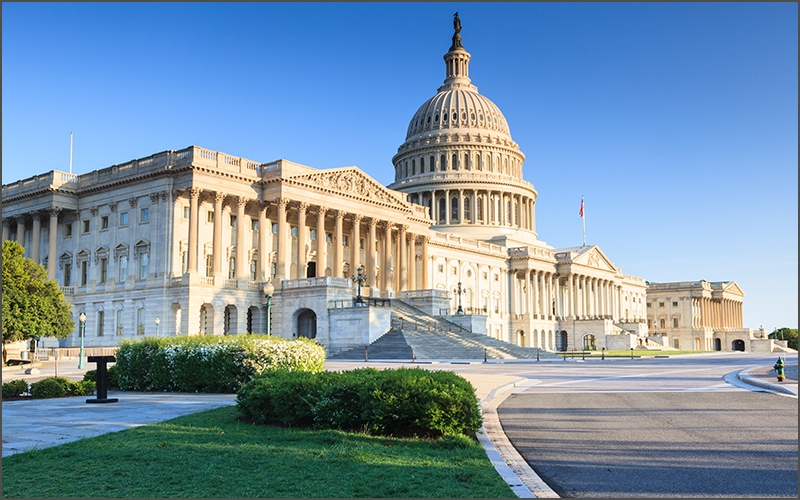Senate Passes Phase III COVID-19 Legislation
Posted by Ben Shuey on March 26, 2020

Update 3/27/2020 1:45pm PST – The bill has passed the House of representatives and has been signed into law by president Trump.
Late last night the United States Senate passed the third phase of COVID-19 legislation, the CARES Act. After days of partisan negotiation the Senate sent a strong message by passing the bill unanimously (96-0) with a handful of Senators unable to vote from quarantine. The bill will now move to the House of Representatives where a voice vote is expected on Friday. The voice vote will allow for many members not to travel back to D.C. for the vote. We hope to have a compliance bulletin out to all Northwest credit unions on the bill shortly after it makes its way to the President’s desk to be signed into law. Below you will find the credit union priorities included in the current legislation along with a handful of helpful summaries of this monumental legislation.
Summary of Credit Union Provisions:
- Making credit unions eligible to participate in the paycheck protection program, which would allow for 100% federally guaranteed loans to small businesses that maintain their payroll.
- Reestablishing the Transaction Account Guarantee Program, in which the government guarantees certain noninterest-bearing transaction accounts.
- Including credit unions in troubled debt restructuring, allowing credit unions to further modify existing loans.
- Expanding NCUA’s Central Liquidity Facility, which serves as a liquidity lender to credit unions experiencing unusual or unexpected liquidity shortfalls.
- Including credit unions in a current expected credit loss (CECL) delay for those entities currently required to comply with CECL. We are still working on a delay of upcoming implementation.
Summary from a tax perspective
Summary from a legal perspective
Summary from Chairman Crapo below:
Crapo Leads Economic Response in Coronavirus Phase III Legislation
Encourages colleagues to take swift action to prop up American households and businesses
WASHINGTON, D.C. – U.S. Senator Mike Crapo (R-Idaho), Chairman of the U.S. Senate Committee on Banking, today unveiled legislation to stabilize the U.S. economy and provide assistance to severely distressed industries, Title IV of the bipartisan Coronavirus Aid, Relief, and Economic Security (CARES) Act.
As Banking Committee Chairman, Senator Crapo worked tirelessly on the Senate task force charged with addressing small business and market liquidity issues, and led negotiations on a provision designed to provide significant economic support to severely distressed sectors of the U.S. economy. The provision props up the U.S. Treasury Department’s Exchange Stabilization Fund with $500 billion, which the Federal Reserve can then leverage to inject approximately $4 trillion back into the marketplace in secured loans.
“Small and large businesses are losing access to liquidity, putting them at serious risk of closing down permanently and displacing millions of workers,” said Crapo. “If businesses go insolvent today, then the economy and the finances of U.S. citizens will suffer long after the coronavirus is contained. We found a way to responsibly inject potentially trillions of dollars back into the market, helping businesses keep their doors open, keep their employees on the payroll and restore as much normalcy at this unprecedented time as possible. This measure, combined with the broader CARES Act, will provide approximately $6 trillion in immediate relief to severely affected industries, helping to stabilize the economy and get Americans through this crisis.”
The Economic Stabilization and Assistance to Severely Distressed Sectors of the U.S. Economy (Title IV of the CARES Act):
- Provides $500 billion to the U.S. Department of Treasury’s Exchange Stabilization Fund to stabilize key national industries;
- Authorizes the Federal Reserve to leverage this fund and provide approximately $4 trillion in direct assistance to various industries, cities and states;
- Protects taxpayer by establishing strict criteria for such loans, including sufficient loan security; timely program termination; no loan forgiveness; a demonstration that other credit from banks is not available; employment retention; and the Federal Government’s compensation must account appropriately for risk (among others); and
- Includes strict oversight for large corporations, including the creation of an independent Inspector General and Congressional Oversight Panel.
The Exchange Stabilization Fund is an account housed within the U.S. Treasury Department. Congress is injecting this fund with $500 billion, $425 billion of which will be used for loans and guarantees to support credit facilities that will be established by the Federal Reserve. Using its critical emergency lending authority, the Federal Reserve can leverage this money and inject many times that amount into the marketplace, unleashing upwards of $4 trillion into the economy. These loans will provide a critical lifeline for businesses, States and municipalities that have been devastated by the coronavirus pandemic. Once the coronavirus pandemic has passed, the loans must be paid back – there is no loan forgiveness. The provision also includes strict stipulations for eligibility and strong oversight measures, ensuring that taxpayers are protected.
Posted in Advocacy on the Move.





















